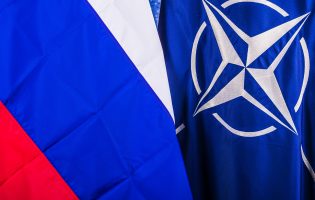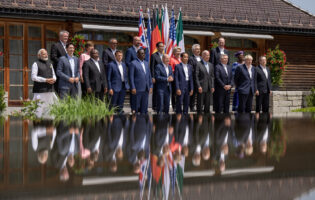German Policy in Afghanistan
Please join AGI for a discussion with Pia Niedermeier, DAAD/AGI Fellow and Research Assistant at the German Institute for International and Security Affairs (SWP), a Berlin-based foreign policy think tank, on “German Policy in Afghanistan – Between Multilateral Reflex and Domestic Limitations.” The discussion will take place on Wednesday, March 23, 2011; a light luncheon will be served.
On January 28th, the German Bundestag passed the annual renewal of Germany’s military mandate in Afghanistan with a comfortable majority. But as Foreign Minister Westerwelle pointed out to his colleagues a few days later at the Munich Security Conference, “[t]hat was no small feat and future extensions will not be any easier.” While over the course of the last year the international community has rallied around a common strategy for transition in London, Kabul, and Lisbon, Westerwelle’s remarks serve as a reminder that the future of international cooperation in Afghanistan is equally determined by domestic politics. Against this background, this seminar seeks to explore how Germany’s Afghanistan mission epitomizes broader trends in the development of German foreign and security policy after the Cold War. Caught between the motivation to contribute meaningfully to international security and the restrictions placed on it by a skeptic domestic environment, Germany’s engagement in Afghanistan carries with it a certain ambivalence. Based on an analysis of the domestic German debate, the seminar will seek to carve out how this ambiguity will impact on national and transatlantic debates. Given that expectations for burden-sharing in Afghanistan will remain acute, the potential for serious strains across the Atlantic will likely remain. Nationally, the lessons learned from Afghanistan provide both challenges and opportunities in any future discussion about Germany’s foreign policy priorities and the adequate instruments to achieve them.
Pia Niedermeier is a Ph.D. candidate at the Free University of Berlin and a research assistant to the international security division of the German Institute for International and Security Affairs (SWP). Her areas of expertise include Germany’s policy in NATO, post-conflict reconstruction, and Afghanistan. Before joining SWP, Ms. Niedermeier worked as a Junior Consultant at the German Ministry of Economic Cooperation and Development on an evaluation of German development assistance to north Afghanistan. She studied international relations at the Free University Berlin, Humboldt University Berlin, and Potsdam University. Currently she is pursuing a doctoral degree at the Free University Berlin under the supervision of Prof. Dr. Thomas Risse that examines the processes and outcomes of intra-alliance bargaining across the Atlantic since 1990.
Heather Conley serves as director and senior fellow of the Europe Program at CSIS. Prior to joining CSIS, Ms. Conley served as senior adviser to the Center for European Policy Analysis, an independent, nonpartisan public policy research institute dedicated to the study of Central Europe. From 2005-2008, Ms. Conley served as the executive director, Office of the Chairman of the Board of the American National Red Cross, where she focused her efforts on developing the first comprehensive reform to the governance structure of the American Red Cross Board since 1947, incorporating best governance practices for nonprofit and for-profit sectors. From 2001-2005, Ms. Conley served as deputy assistant secretary of state in the Bureau for European and Eurasian Affairs, with responsibilities for U.S. bilateral relations for the 15 countries of northern and central Europe. Ms. Conley received her B.A. in international studies from West Virginia Wesleyan College and her M.A. in international relations from the Johns Hopkins University Paul H. Nitze School of Advanced International Studies (SAIS).







